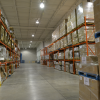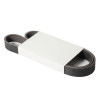Start-Ups: Are You Ready for a Co-Packer?
Posted By: Karl Wirtz
Posted On: 20th May ‘ 16
If you’re working on a new business idea or product, working with a co-packer can be a smart business decision – helping you grow sales, expand your brand, and scale your business.
But you need to be ready to take that step.
If you’re thinking about partnering with a co-packer, this guide outlines how you need to prepare to streamline the process and make it hassle free for everyone involved:
1. Conduct Some Field Research
Before contacting co-packers, research products similar to yours – paying particular attention to their packaging. Visit retail stores to see how your competitors are marketing their merchandise. That will help you develop packaging that will stand out from the crowd.
2. Ensure your Product is Out of its Concept Stage
In order for a co-packer to provide an accurate quote, you need to know how your product is going to be made.
You should know:
- The specs for your product including its name, description, weight, nutritional values, and labelling.
- Your product’s processing instructions. With baked goods, for example, you need to provide details like mixing speeds, baking times, and baking temperatures.
- A complete ingredient list. If your product needs to be produced in specific environments – including nut-free, Kosher, or more – you need to tell your co-packer.
Especially if you’re moving from small batches to large-scale production, you need to know how that transition will affect the ingredients, components, and processes involved in creating your products.
3. Research Necessary Certifications and Documentation
Before approaching co-packers, make sure you know if:
- Your co-packer’s facilities need specific certifications to produce or package your products.
- Your co-packer needs specialized equipment to handle your products.
- You need to secure documentation and signatures before your products can be shipped or sold.
It’s important to supply that information and necessary documentation to your co-packer in advance. Dedicated co-packers will look into acquiring new certifications and capabilities if they don’t already have them, letting them meet your needs and deliver superior results.
4. Develop Your Sales and Marketing Strategy
Before approaching co-packers, make sure you have an up-to-date business plan. Knowing your projected monthly, quarterly, and yearly sales will help inform your ordering routine – including how many runs you’ll be making and how many units you’ll need per run. Ideally, you should have a buyer lined up before you start production to safeguard your investment.
5. Narrow Down Your Packaging
Although your co-packing partner can work with you to find the packaging that will be best for your product and business, you need to approach them with an already developed idea of what you want.
It’s important that you don’t let the price point be the deciding factor when choosing packaging. Using the best packing materials will help attract customers’ attention and convince them of your product’s quality. Your co-packing partner can work with you to find a cost-effective solution that will help you stay within budget, boost your sales, and grow your business.
At WG, our experts can handle co-packaging projects according to your unique needs. We have more than 135,000 sq ft of warehouse space, certified facilities, temperature-controlled environments, nut-free facilities, and more. Contact us today to discuss your co-packing needs!
Read more from WG:
- 7 Tips for Choosing the Right Co-Packing Partner
- What is a Co-Packer?
- 6 Benefits of Working with a Co-Packer
- Congratulations to David John Vongalu, Winner of This Year’s WG Leadership Award at Sheridan College’s Pilon School of Business - June 23, 2017
- 4 Future-Forward Co-Packing Trends - May 2, 2017
- WG Connects with Companies Eager to Grow in North America at the International Sweet and Snack Fair in Germany - February 23, 2017


















